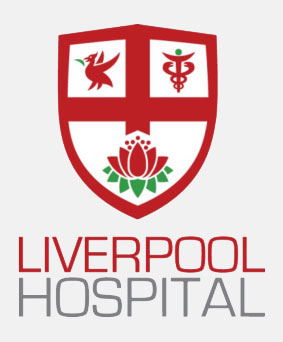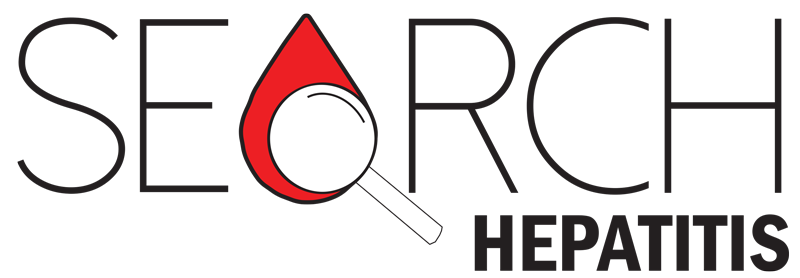The Gastroenterology and Liver Department offers students a unique opportunity to work alongside world-leading research within state-of-the-art facilities, in direct collaboration with the UNSW and Liverpool Hospital.
There are numerous research projects available that Honours, Masters or PhD students could undertake. The following list provides example of current research. Contact the research lead to find out more.
CLINICAL LIVER RESEARCH GROUP
A/Prof Miriam Levy
INFLAMMATORY BOWEL DISEASE RESEARCH
Prof Susan Connor
Active Projects
For further information about these research projects, please email the Department - Attention to A/Prof Miriam Levy.
For further information about these research projects, please email the Department - Attention to Prof Susan Connor.
-
Optimising the management of hepatitis B virus in pregnancy and post-partum
Liver
Hepatitis B virus (HBV) transmission is usually prevented by infant vaccination. Anti-viral therapy in some settings is beneficial to increase protection. The optimal regimens during pregnancy and post-partum are the subject of this work.
Further Information
-
Health literacy in culturally and linguistically diverse populations: testing novel strategies to improve outcomes Hepatitis B Bear
Liver
South Western Sydney has a vast migrant population where English is not the primary language spoken at home. Health literacy is important for patients to understand their disease and treatment options. This project will devise and novel strategies to improve health literacy in these culturally and linguistically diverse populations and examine their efficacy and utility.
Further Information
-
Liver Cancer
Liver
Liver Cancer has a poor prognosis and often presents late in South Western Sydney, outside of screening programs. This project will investigate reason for late presentation and course of appropriate surveillance in SWSLHD.
Further Information
-
HCV Elimination Projects
Liver
Hepatitis C virus (HCV) is highly transmissible and particularly endemic within difficult to access populations. Despite the advent of antiviral medications that eliminate the virus in a majority of people, difficult to access populations face many social and logistical hurdles that impacts access to specialists and effective treatment. The goal of these projects is to widen the reach for HCV eradication.
- Project ECHO® - examining this novel mentoring programme to establish if healthcare outcomes in difficult to access populations can be improved.
- SEARCH (Screening Emergency Admissions for Rates of Chronic Hepatitis) – screening high risk populations (overseas born patients from countries with high prevalence of HBV and HCV, and Indigenous Australians) according to the NSW Health Testing Policy.
For more information about the SEARCH Service
please view our page here- Dried Blood Spot - aims to provide a means to screen ‘Difficult venous access patients/patients who are for whatever reason cannot be screened in the GP/OST providers setting and attending Project ECHO/and have a history of IVDU’ patients and to provide support to the ECHO participants to be able to identify both positive and negative patients for HIV/HCV and treat patients with HCV.
Further Information
- Project ECHO® - examining this novel mentoring programme to establish if healthcare outcomes in difficult to access populations can be improved.
-
Patient support tools in IBD including a national clustered randomised controlled trial (CRCT) comparing myAID (an ulcerative colitis patient decision aid) with standard care
IBD
Shared decision making (SDM) in chronic diseases enables and encourages patients to play an active role in the management of their health. Decision Aids (DAs) are tools developed for preparing patients for decision making about specific treatment choices and are used to promote SDM. This project will identify and assess preferences, challenges, and quality of life in patients with ulcerative colitis.
Further Information
-
Clinical utility and cost effectiveness of biologic therapeutic drug monitoring in IBD
IBD
Biologics are used in the management of IBD but a proportion of patients (up to 50%) will have exacerbation of their disease with standard dosing. This has been managed with empiric dose escalation and/or greater frequency of biologic administration. However, the advent of quantitative assays for biologic levels and anti-biologic antibodies (therapeutic drug monitoring) has made individualisation of biologic dosing possible. We have multiple projects investigating the utility and cost effectiveness of biologic therapeutic drug monitoring in IBD as well as the role of TDM in personalised care.
Further Information
-
Clinician decision support tools in IBD
IBD
There are numerous support tools available for clinicians to educate them on IBD and treatment options. This project will assess and determine the usefulness of these tools in clinical practice.
Further Information
-
Genetic and clinical predictors of IBD
IBD
Both Crohn’s disease and ulcerative colitis are characterised by a series of relapses and remissions, and there is no cure. Currently, there is limited understanding of the clinical, environmental and genetic factors that may play a role in determining disease severity. This project will investigate the molecular architecture of IBD phenotypes and sub-phenotypes, and the development of predictive tools for disease natural history and response to treatment.
Further Information
-
Diet in IBD: understanding the integral role of diet in IBD care
IBD
Malnutrition and obesity are common in patients with IBD. Patients may have nutrient deficiencies or suffer from nutritional issues. There is evidence that nutrition and diet assessments and plans can induce disease remission and this project will further investigate this.
Further Information
-
Pregnancy and IBD
IBD
There are different treatments for IBD but minimal information on the uses of these therapies during pregnancy. This project will investigate the different IBD treatments given to pregnant women and assess their experiences and the outcomes of their therapy during their pregnancy.
Further Information
-
Epidemiology of IBD in SWSLHD
IBD
In Australia, approximately 1 in 250 people aged between 5 and 49 years suffers from IBD. It is predicted that by 2022, there will be 100,000 people in Australia affected by IBD. Of these, over 5,000 patients with IBD will be in the South Western Sydney Local Health District (SWSLHD). This project will investigate factors affecting the epidemiology of IBD in SWSLHD.
Further Information
-
Microbiome and IBD
IBD
The gut microbiome plays an important role in IBD. There is currently limited understanding about which aspects of the microbiome are important in IBD and furthermore, how we can use our knowledge of the microbiome to improve disease control. We have a number of projects investigating aspects of the microbiome and IBD.
Further Information
If you have any enquiries or would like to make an appointment, please email:
Gastroenterology and Liver
Clinic E (123), Level 1
Liverpool Hospital
Corner of Elizabeth and Goulburn Streets
LIVERPOOL NSW 2170
02 8738 4085
FAX: 02 8738 7960
Our phones cannot always be answered, so the best way to contact us is via email or fax
8.30am - 4.00pm
Monday to Friday



